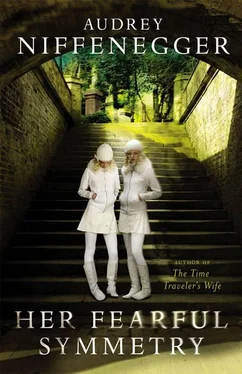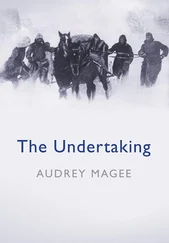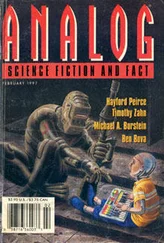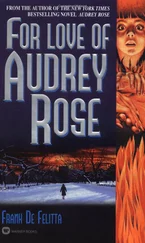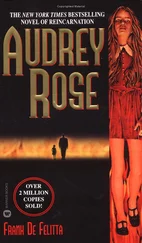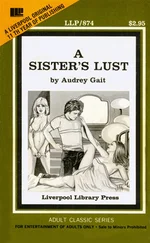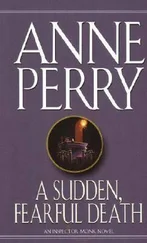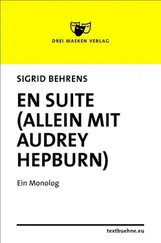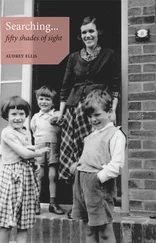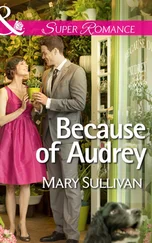He spent a lot of time in her flat, winding up her business, wandering around touching things, lying on her bed curled up with some piece of her clothing. She worried about him. He looked thin, ill, depressed. I don’t want to see this, she thought. She vacillated between urgently trying to make him aware of her and leaving him alone. He won’t get over it if he knows you’re here, she told herself.
He’s not getting over it anyway.
Sometimes she would touch him. It seemed to affect him like an icy draught; she could see the goosebumps rise on his skin as she ran her hands over him. He felt hot to her. She could only feel warmth and coolness now. Rough and smooth, soft and hard: these were lost to her. She had no sense of taste or smell. Elspeth was haunted by music; songs she had loved, or hated, or barely even noticed now played in her mind. It was impossible to be rid of them. They were like a radio played at low volume in a neighbouring flat.
Elspeth liked to close her eyes and caress her own face. She had substance under her own hands, even though the rest of the world slid through her as though she were walking in front of a film projected on a screen. She no longer went through any daily rituals of washing, dressing or applying make-up: calling a favourite jumper or dress to mind was enough to find herself wearing it. Her hair did not grow, much to Elspeth’s disappointment. It had been hard to see it all fall out, handful by handful, and when it had begun to come in again it was someone else’s hair, silver-grey in exchange for her blonde. It felt coarse when she ran her hands over it.
Elspeth was no longer reflected in mirrors. It drove her mad-she already felt marginal, and not being able to see her own face made her lonely. She sometimes stood in her front hall, looking intently into the various mirrors, but the most she caught was a dark, smudgy indication, as though someone had begun to draw on the air with charcoal and then rubbed it out, incompletely. She could hold out her arms and see her own hands quite visible before her. She could bend over and stare at her well-shod feet. But her face eluded her.
Being a ghost was mostly like that: it forced her to feed off the world. She no longer possessed anything. She had to take her pleasure in the doings of others, in their ability to move objects, consume food, breathe air.
Elspeth badly wanted to make noise. But Robert could not hear her, even when she stood inches away from him and yelled. Elspeth concluded that she had nothing to make a sound with-her ethereal vocal cords weren’t up to the task. So she concentrated on moving things.
At first things were utterly unresponsive. Elspeth would gather all her substance and fury and hurl herself at a sofa cushion or a book: nothing would happen. She tried to open doors, rattle teacups, stop clocks. The results were indiscernible. She decided to retrench, and began to attempt very small effects. One day she triumphed over a paper clip. By dint of patient tugging and pushing she managed to move it half an inch over the course of an hour. She knew then that she was not a negligible being: she could affect the world if she tried hard enough. So every day Elspeth practised. Eventually she could push the paper clip off the desk. She could flutter curtains and twitch the whiskers of the stuffed ermine who sat on her desk. She started to work on light switches. She could make a door sway a few inches, as though a breeze had come through the room. To her joy, she succeeded in turning the pages of a book. Reading had been Elspeth’s great pleasure in life, and now she could indulge in it again, as long as the book was left lying open for her. She began to work on pulling books from their places on the bookshelves.
As insubstantial as objects were to Elspeth, or she to them, the walls of the flat were absolute barriers and she could not pass beyond them. She didn’t mind this at first. She worried that if she went outside she would be dispersed by wind and weather. But eventually she became restless. If her territory had included Robert’s flat she would have been content. She tried many times to sink through the floor, but only ended up in a sort of puddle, like the Wicked Witch of the West. Attempts to slide under the front door into the hallway were also unsuccessful. She could hear Robert down in his flat, taking a shower, talking to the TV, playing Arcade Fire on the stereo. The sounds filled her with self-pity and resentment.
Open windows and doors were inviting but useless. Elspeth found herself dispersing, shapeless but still in the flat, as she tried to pass through them.
Elspeth wondered: Why? What is all this for? I understand the rationale behind heaven and hell, reward and punishment, but if this is limbo, what is the point? What am I supposed to be learning from the spiritual equivalent of house arrest? Is every dead person consigned to haunt his or her former home? If so, where are all the other people who lived here before me? Is this an oversight on the part of the celestial authorities?
She had always been lax when it came to religion. She had been C. of E. in the same way everyone else was: she supposed she believed in God, but it seemed rather uncool to make a fuss about Him. She had seldom been in church unless someone was dead or being wed; in retrospect she felt even more remiss because St. Michael’s was practically next door. I wish I could remember my funeral. It must have happened while she was rolling around the floor of the flat in an amorphous mist. Elspeth wondered if she should have been more assiduous about God. She wondered if she was going to be stuck in her flat for all eternity. She wondered if someone who was already dead could kill herself.
E DIE AND VALENTINA sat together in Edie’s workroom, sewing. It was the Saturday before Christmas; Julia had gone downtown with Jack to help him shop. Valentina pinned the dress pattern to yards of violet silk, careful to lay out the pieces without wasting fabric. She was making two identical dresses, and she wasn’t sure she’d bought enough silk.
“That’s good,” Edie said. The room was warm in the afternoon sun, and she felt a little sleepy. She offered Valentina her best scissors and watched the steel work through the thin material. That’s such a great sound, the blades moving together that way. Valentina handed Edie the pieces, and Edie began to transfer the seam lines from the pattern to the fabric. They passed the silk back and forth, working companionably out of long habit. Once the fabric was marked and unpinned and repinned without the pattern, Valentina sat at her sewing machine and carefully stitched the dress together while Edie began to pin and cut out the second dress.
“Look, Mom,” said Valentina. She stood and held the front of the dress against her chest. Static electricity wrapped the skirt around her with a crackle. There were no sleeves yet, and the seams were raw; Edie thought the dress was like a costume for a fairy in a Christmas pantomime. “You look like Cinderella,” Edie said.
“Do I?” Valentina went to the mirror and smiled at her reflection. “I like this colour.”
“It suits you.”
“Julia wanted me to make them in pink.”
Edie frowned. “You’d look like twelve-year-old ballerinas. We could have made hers pink.”
Valentina caught her mother’s eye, then looked away. “It wasn’t worth the hassle. She wanted whatever I was making for myself.”
“I wish you’d stand up to her more often, sweet.”
Valentina peeled the dress away from her and sat down at the machine. She began to make the sleeves. “Did Elspeth boss you around? Or did you boss her?”
Edie hesitated. “We didn’t-it wasn’t like that.” She laid the second dress flat on the table and began to roll the tracing wheel over the seam lines. “We did everything together. We never liked to be alone. I still miss her.” Valentina sat still, waiting for her mother to continue. But Edie said, “Send me photos of the flat, will you? I imagine it must be full of our parents’ furniture; Elspeth loved all that heavy Victorian stuff.”
Читать дальше
